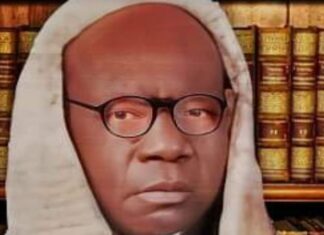The death of Prof. Dora Akunyili in an Indian hospital recently has obviously enhanced the Asian nation’s status as a choice destination for our people who now call trips for medical treatment “Medical Tourism.”
It is indeed worrisome that our national media, as well as government officials, have joined the chorus with little or no concern to find out what tourism entails in the first place.
Tourism, in the English language, is a noun derived from “tour” which is also a noun. It is also from that root that the word “tourist”, another noun, originates.
One is not being pedantic by insisting that we use words and phrases correctly, especially in the more seriously regarded media and in official communication.
“Tour” in the Chambers English Dictionary, “is a prolonged journey from place to place, e.g. for pleasure, or to give entertainment as a performer, or to give lectures, play matches etc.; a pleasure trip or outing; a shift or turn of work; a period of military service in a particular place (also tour of duty) …”
“Tourism”, on the other hand, is described by the same dictionary as “The activities of tourists and those who cater for them.”
And what does the dictionary in reference say of a tourist?
A tourist is “one who makes a tour, especially a sight-seeing traveler or sportsman.”
To drive home the point being made that Nigerians should not use foreign words and phrases frivolously, let’s consult another English Dictionary.
The Oxford Advanced Learner’s Dictionary, International Student’s Edition, explains “Tour” as “a journey made for pleasure during which different towns, countries, etc. are visited,” while it depicts “tourism” as “the business activity connected with providing accommodation, services and entertainment for people who are visiting a place for pleasure.”
Now, with these Dictionary explanations of tourism, where does the emergency dumping of seriously ill compatriots in an Indian, German, American or British Hospital fit in?
While we may not be able to stop the unfortunate habit of rushing off to foreign lands for medical attention, we can, at least, afford to call our action by its correct name.
A sojourn in a hospital is not medical tourism. There is no pleasure derived in lying in hospital hoping and praying that you come out of it alive and well.
A tourist on a visit to enjoy himself in sight-seeing and sampling of foreign food and culture, can naturally call at a medical or health institution to check his health status, say, Blood Pressure or Sugar Level.
His standing as a tourist is thus not compromised. But a Nigerian who is taken in air ambulance in pain or in an unconscious state, to a hospital abroad is certainly not on any tour, nor can he or she be truly designated a tourist.
So it was time we stopped being malapropic in our choice of expressions.
Our journalists particularly “who write what many read,” should be extra careful in their use of language.
What we do not know, we should strive to know. But the tragedy is that quite a number of our men of the pen profession, do not believe that there could be areas of the English Language usage they do not know.
Even when they are corrected by their readers, or their peers, they feel miffed and ignore such correction. The fact of life is that even the person pointing out an error can make mistakes also that can only be discovered by another person.
Before we drop this tourism subject that is wrongly applied to medical treatment overseas, let us mention one other word that Nigerians are also applying very incorrectly.
The word is “Vandalise” which is applied often when describing activities of thieves of petroleum or the public electricity company’s property. A felon who ruptures a pipe in search of either crude or refined oil is a thief because he is doing what only a thief does – stealing!
So it is with hoodlums who fiddle with PHCN’s transformers to tap the special transformer oil, or those who cut cables, both bare aluminum, armoured as well as fibre-optic cables, belonging to PHCN or NITEL.
They are thieves not vandals.
And what they do is not vandalising such property. To vandalise, according to my dictionaries is “to damage something, especially public property, deliberately and for no good reason.”
A vandal, therefore, is a “person who deliberately destroys or damages public property.”
Historically, Vandals were actually a fierce tribe in North-Eastern Germany who overran Gaul (modern France), Spain and North Africa in the fifth century, destroyed churches, etc.
A vandal soon became a word for describing one who destroys beautiful things or wantonly damages property.
We merely glorify and reduce in severity the criminal act of stealing when we call such an act by the wrong name of vandalising.
A vandal profits nothing from what he damages or destroys while the Nigerian variants are rouges who steal and sell the public property they tapped.
Call them cable thieves and treat them accordingly.
It is sad to read press releases signed by Public Relations Officers of former NITEL, old NEPA or officials of the GSM providers reporting and condemning acts of vandalisation by miscreants who are actually thieves.
A thief attempting to steal overhead high tension cables and gets electrocuted should not be referred to a vandal but as a thief.
Stealing is a more heinous criminal offence than vandalism which could pass as a misdemeanour in some societies, depending on what is damaged or destroyed.
Mazi Nnamdi Nwigwe
nwigwennamdi@yahoo.co.uk
Mobile: 08037024609












